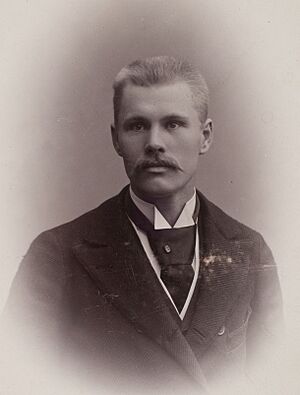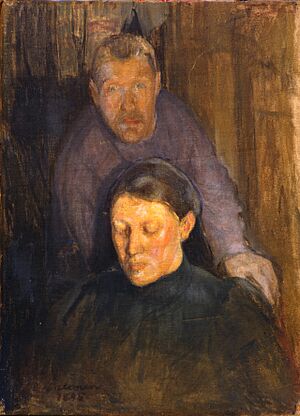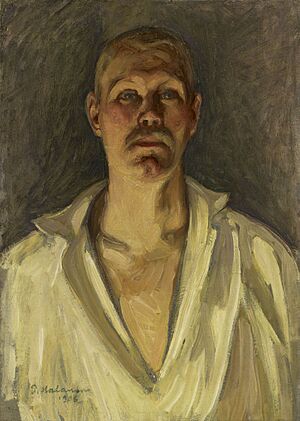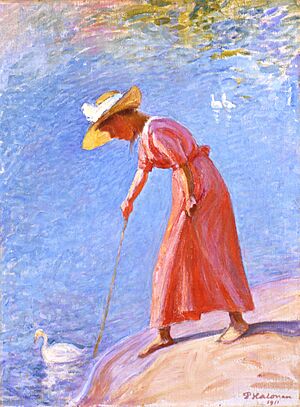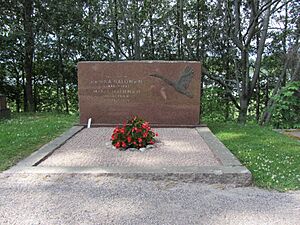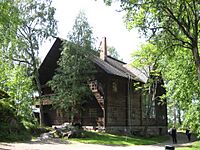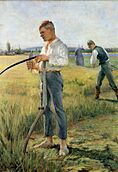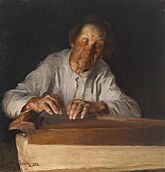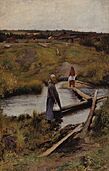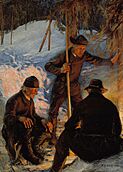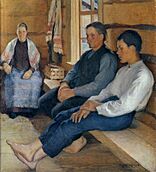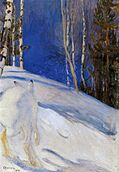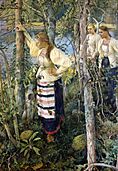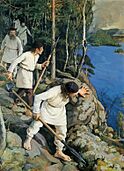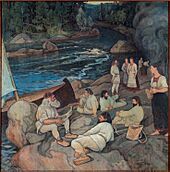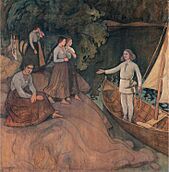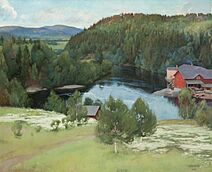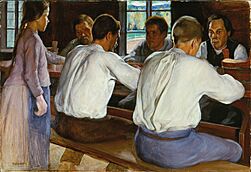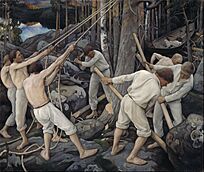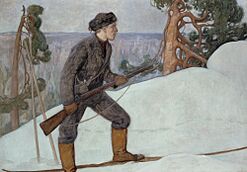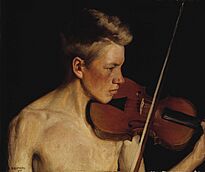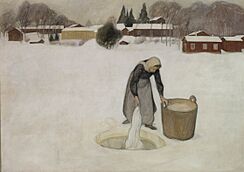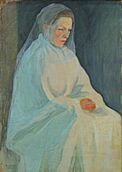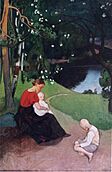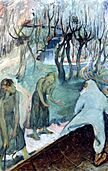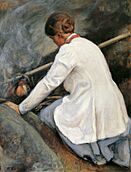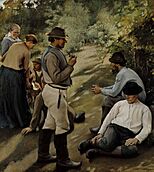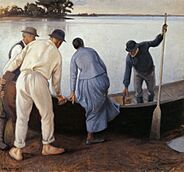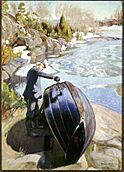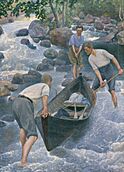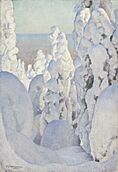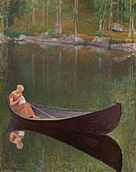Pekka Halonen facts for kids
Quick facts for kids
Pekka Halonen
|
|
|---|---|
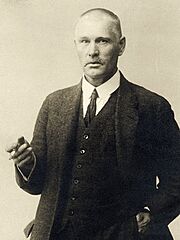
Halonen in 1899
|
|
| Born | 23 September 1865 Lapinlahti, Grand Duchy of Finland, Russian Empire (now Finland)
|
| Died | 1 December 1933 (aged 68) Tuusula, Finland
|
| Known for | Painting |
Pekka Halonen (born September 23, 1865 – died December 1, 1933) was a famous Finnish painter. He was known for his beautiful paintings of nature and people. His art style is called National Romanticism and Realism. This means he painted real-life scenes but also showed a strong love for his country.
Contents
Life of Pekka Halonen
Pekka Halonen was born on September 23, 1865. His birthplace was Linnasalmi, a small village in Lapinlahti, Finland. His father, Olli Halonen, was a farmer and also an amateur artist. He painted decorations for churches nearby. Young Pekka often went with his father on these trips. This is how he first learned about painting.
Pekka studied art in Helsinki for four years. He attended the Art Society's Drawing School. He did very well and won a scholarship to study abroad. In 1890, he traveled to Paris, France. There, he studied at the Academie Julian and later with the famous artist Paul Gauguin. He also studied at the Académie Vitti.

In 1896, he visited Italy. He went to cities like Florence, Siena, Rome, and Naples. He wanted to study art from the early Renaissance period. In 1900, he created two paintings for Finland's display. These were shown at the big World's Fair in Paris. In 1904, he traveled to Vienna and then to Florence.
In 1895, Pekka Halonen married Maija Mäkinen. She was a young music student. They had a large family with eight children, four sons and four daughters. Pekka Halonen passed away in Tuusula, Finland, on December 1, 1933. He was buried at the Tuusula Church.
Pekka Halonen's Art Style
Halonen loved to paint the Finnish landscape and its people. He was interested in Symbolism early on. But the art of Paul Gauguin and Japanese woodcuts really influenced him. These styles made his work more decorative.
Many of his paintings show simple, everyday scenes. For example, Sauna in the Snow (1908) captures the quiet beauty of fresh snow. When Finland's future was uncertain, Halonen used his art. He wanted to make people proud of their country. He did this by painting the Finnish landscape in a special way.
Halonen once said he only painted for himself. He believed that "Art should not jar the nerves like sandpaper – it should produce a feeling of peace."
Halosenniemi: His Home and Studio
In 1895, Halonen and his family moved into a special house. It had a studio and was located by Lake Tuusula in Tuusula, Finland. This impressive house was made of pinewood and was called ‘Halosenniemi’. Pekka Halonen designed it himself with his brother Antti Halonen. It was finished in the winter of 1901–02.
Next to the house, Halonen built a sauna. In Finland, saunas are also often used for laundry. The nature around Halosenniemi was very important for his art. In Tuusula, Halonen had many artist friends and family nearby. This gave him lots of ideas and social time.
An artists' community grew on the shores of Lake Tuusula. This group helped to build a strong sense of Finnish national identity through art. Halosenniemi was designed like the two-story studios in Paris. It had high ceilings and tall windows in the studio area. The living quarters were on the second floor, with stairs and a balcony overlooking the studio.
Today, Halosenniemi is a museum. You can see the original furniture and many of Halonen's paintings there.
Selected Works by Pekka Halonen
-
Väinämöinen's Play, 1897
-
Pioneers in Karelia, 1900 (fi)
-
Pekka Halonen - Saunassa.jpg
In the Sauna, 1925
Images for kids
See also
- Golden Age of Finnish Art
- Finnish art
 | Bayard Rustin |
 | Jeannette Carter |
 | Jeremiah A. Brown |


